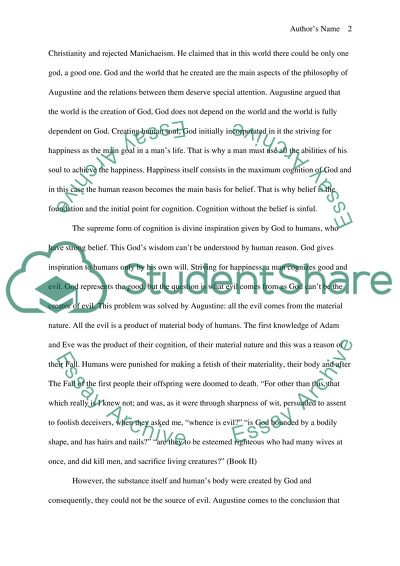Cite this document
(“Evil in St.Augustine's Confessions Essay Example | Topics and Well Written Essays - 1500 words”, n.d.)
Retrieved from https://studentshare.org/philosophy/1491121-evil-in-staugustine-s-confessions
Retrieved from https://studentshare.org/philosophy/1491121-evil-in-staugustine-s-confessions
(Evil in St.Augustine'S Confessions Essay Example | Topics and Well Written Essays - 1500 Words)
https://studentshare.org/philosophy/1491121-evil-in-staugustine-s-confessions.
https://studentshare.org/philosophy/1491121-evil-in-staugustine-s-confessions.
“Evil in St.Augustine'S Confessions Essay Example | Topics and Well Written Essays - 1500 Words”, n.d. https://studentshare.org/philosophy/1491121-evil-in-staugustine-s-confessions.


